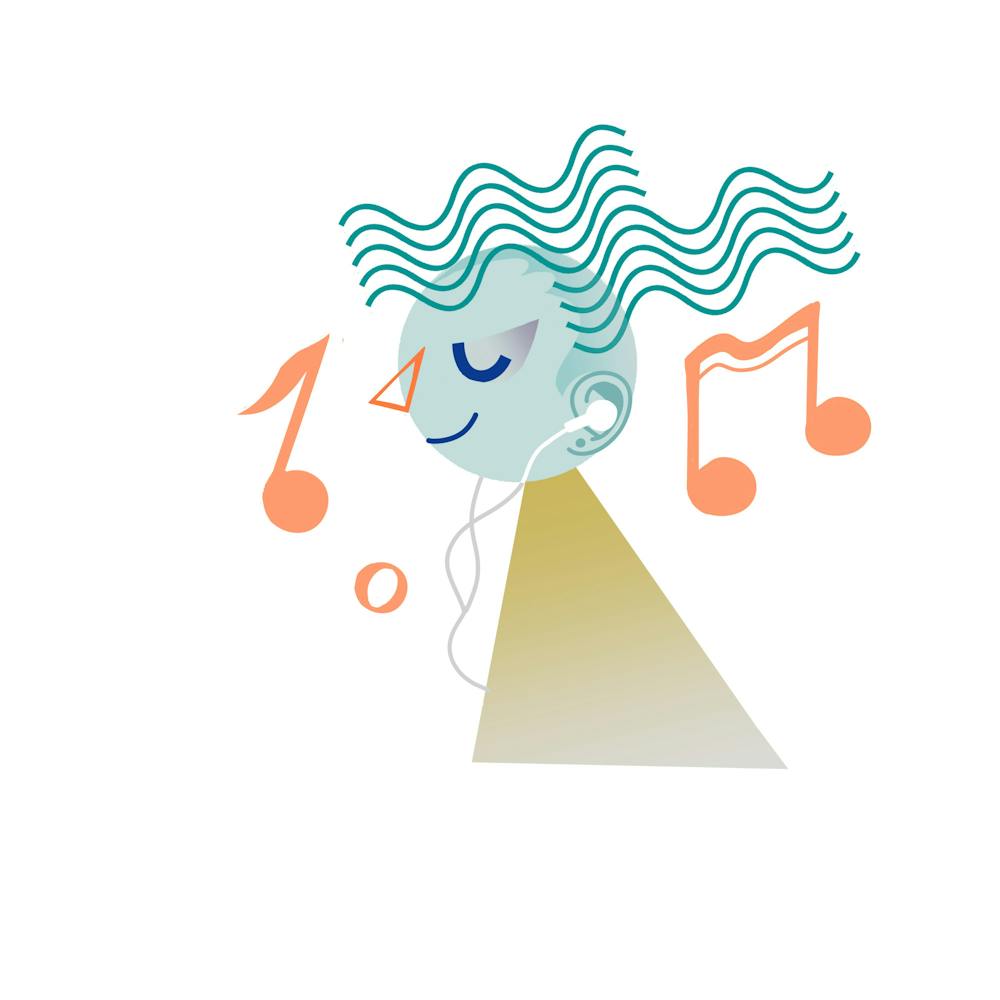When discussing mental health at the university level, there is one topic that consistently comes up: test anxiety. Numerous studies have shown that test anxiety negatively affects college students, but how do we combat it? Maybe with the magic of music.
About 25-40% of U.S. students suffer from test anxiety and for 10-35% of college students, it impairs their function, according to a study on test anxiety published in Advances in Medical Education and Practice.
Music has been proven useful in calming the mind and body in other areas, so why don’t we use it at the University of New Mexico too?
Several studies have already shown that music could have a positive impact on test anxiety.
The use of music appeared to help pharmacy students reduce test anxiety – even with only minimal exposure – according to a study published in Pharmacy. The results were the same regardless of whether students listened to music passively or actively, according to the study.
Another study, “Effects of Music and Grade Consequences on Test Anxiety and Performance,” found that “those who listened to calm music had lower systolic blood pressure, lower heart rate and higher test scores.”
How does music calm us? What is it doing to our brains that makes it so good for us?
Music can affect blood pressure, heart rate and hormones; externally, it can cause goosebumps or chills, Alan Harvey, a neuroscientist and musician, said in a TED Talk.
This is done by changing how our brain releases different hormones and neurotransmitters, according to an article published in Reviews in the Neurosciences.
Music’s effect on the body makes it instrumental in calming nerves before a big test. It would also be useful for the actual test content too.
“Music has an extraordinary capacity to evoke memories – to allow us to remember things that have happened in the past. Music also activates pathways within a complex structure called the limbic system. The limbic system is buried beneath the surface of the brain; it's involved in learning and memory and also our emotional responses,” Harvey said in his TED Talk.
If music affects our memory, could it potentially help us remember test content?
Get content from The Daily Lobo delivered to your inbox
Music can significantly improve short-term verbal memory and recall, according to an article in Breakthrough Guitar.
The article goes on to explain that hearing a familiar song from the past activates the brain, particularly the region linked to learning, memory retrieval and self-awareness.
If you listen to a specific song while studying, could listening to that song while taking the test improve your content recall? It looks like the answer might be yes.
Our professors strive to help us learn and retain information, so wouldn’t allowing us to play music while testing help us achieve that goal?
There are a few questions that need to be asked first. Most important of all, perhaps, is the matter of how professors would monitor what students are listening to.
Maybe that question is completely unnecessary. Professors could choose their own music – ranging from classical, lofi, jazz and other instrumental playlists – to play for students. Furthermore, they could make those playlists accessible before the test so students can study with them.
The arts have a deep, complex relationship with academia. It’s time we start using that relationship to our advantage.
Arly Garcia is a freelance reporter with the Daily Lobo. She can be reached at culture@dailylobo.com or on Twitter @DailyLobo






